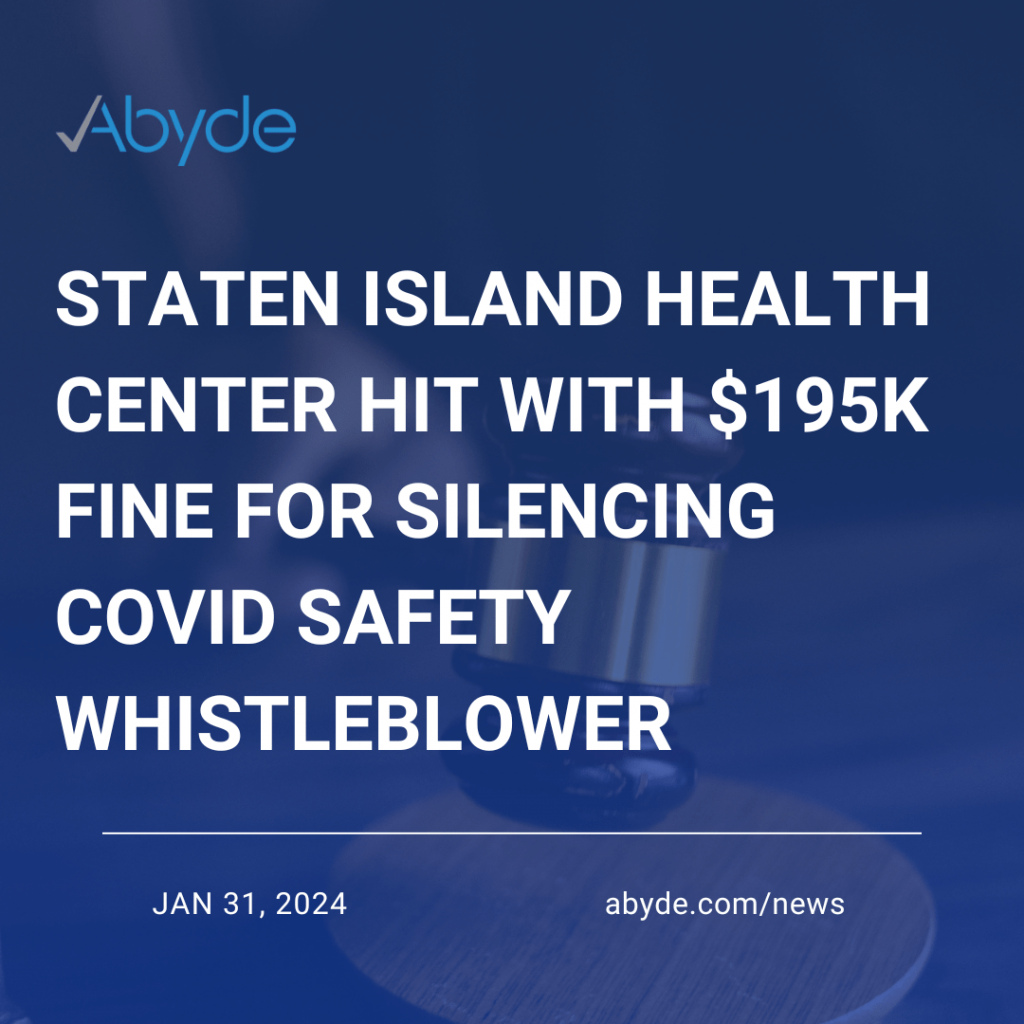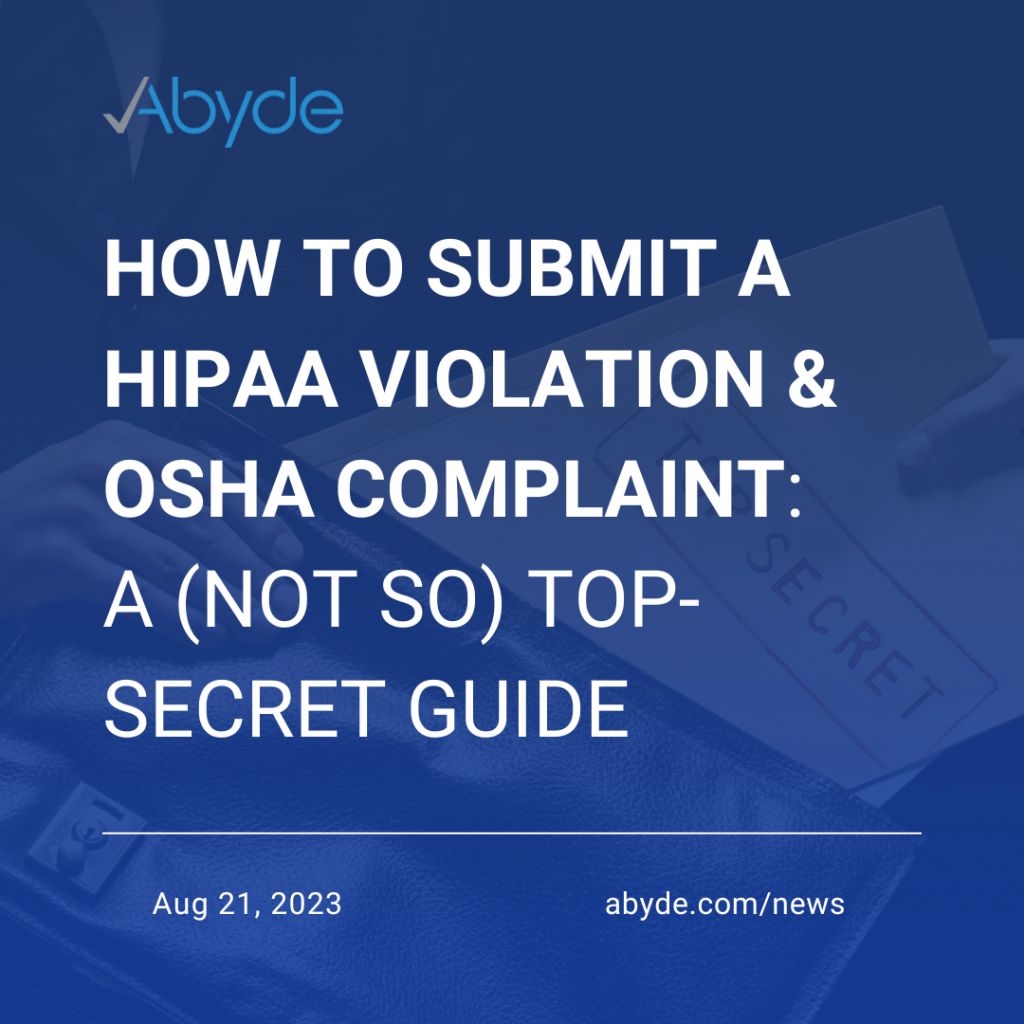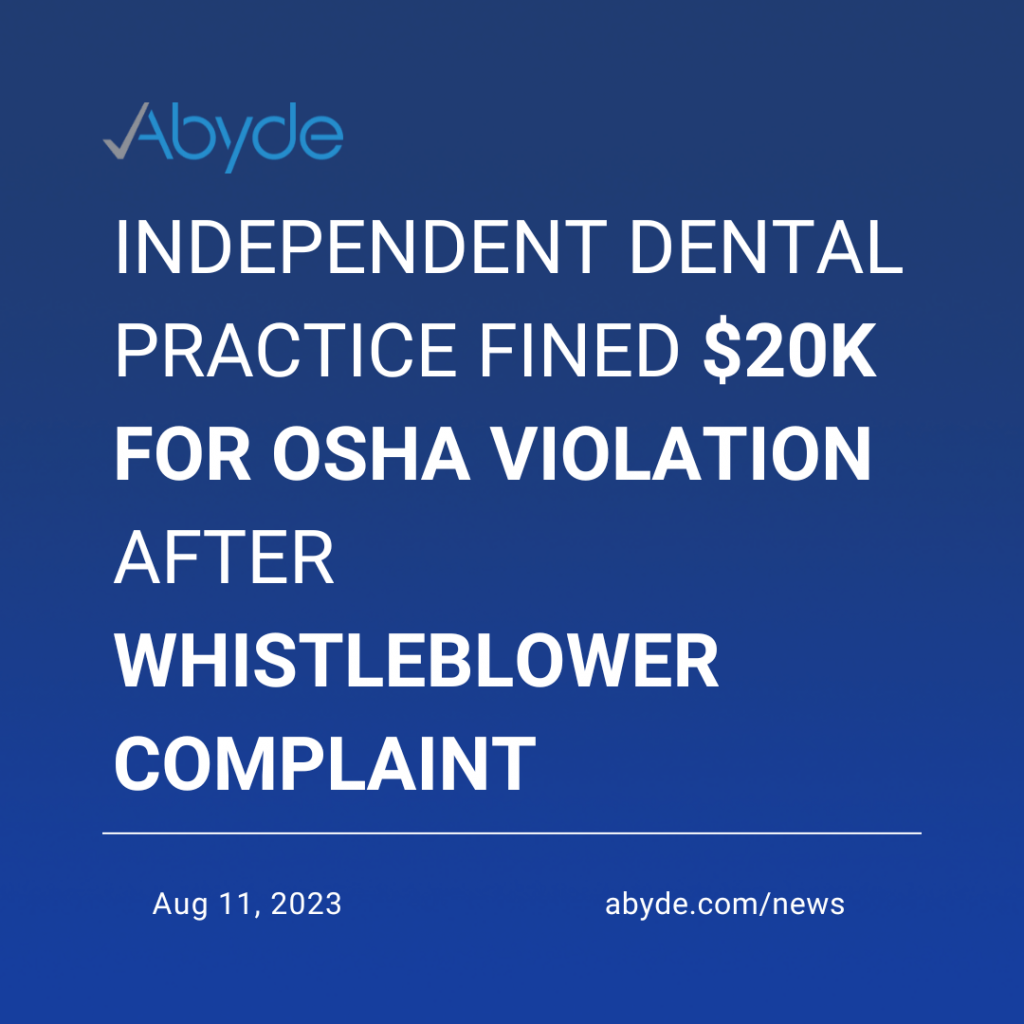January 31, 2024 Hi regulation rockstars! There have been some major new updates in OSHA fines. A Staten Island health center recently learned a $195,000 lesson on the importance of whistleblower protection during a global pandemic. What Happened: A Staten Island health center, Community Health Center of Richmond (CHCR), has been ordered to pay $195,000 to a former employee they illegally fired for raising concerns about an in-person staff meeting during the early days of the COVID-19 pandemic. Ouch. The Whistleblower: This brave employee, concerned about the health risks of an in-person meeting in March 2020, requested a teleconference instead. They even went ahead and changed the meeting format themselves. Talk about taking initiative! Retaliation Bites Back: Unfortunately, CHCR CEO Henry Thompson wasn’t having it. He insisted on the in-person meeting, putting the employee in a tough spot. Faced with the choice between their health and their job, the employee ultimately chose not to attend. But instead of understanding their concerns, CHCR suspended them for “insubordination” and then fired them shortly after. Yikes. OSHA Steps In: The employee, rightfully upset, filed a whistleblower complaint with OSHA. And guess what? OSHA investigated and found CHCR in violation of whistleblower protection laws. Big win for employee rights! The Payout: As part of a settlement, CHCR and Thompson are shelling out $195,000 to the employee, on top of other measures like: The Takeaway: This case sends a clear message: Employers can’t silence employees who raise safety concerns, especially during a pandemic. Here’s what this means for you: Remember, your health and safety matter. Don’t let employers bully you into silence. If you have concerns, speak up and know that you have rights. To learn more about your rights in the workplace, email info@abyde.com and schedule an educational consultation here.
How to Submit a HIPAA Violation and OSHA Complaint: A (Not So) Top-Secret Guide
August 21, 2023 HIPAA and OSHA: two acronyms that sound like they could be distant cousins of R2-D2 from “Star Wars,” but they’re actually heavyweights in the worlds of healthcare and occupational safety. Brace yourselves as we venture into the exciting universe of privacy policies and safety protocols – with a side of sass! Reporting a HIPAA Violation – The “No Peeking Allowed” Rule HIPAA, not to be confused with a hippo or a new dance craze, is all about safeguarding your medical secrets. Here’s how you can report a violation in case someone’s trying to sneak a peek at your X-rays: Filing an OSHA Complaint – Because Safety First, Always If you’ve spotted something at work that screams, “I’m a hazard, come find me!” it’s time to put on your imaginary superhero cape and report an OSHA violation: Why It’s Important HIPAA OSHA Contact Information for Reporting Violations Got a pen and paper? Here’s where you send those pesky complaints: HIPAA’s Secret Keepers OSHA’s Safety Squad HIPAA and OSHA might not be the riveting dinner party conversation starters, but they know how to throw a compliance party. By following these (not so) top-secret instructions, you’ll be on your way to becoming a healthcare privacy hero or workplace safety wizard. So, the next time someone violates HIPAA or OSHA, remember: You’ve got the power (and this handy guide) to keep everyone straight and narrow! Note: If you need assistance with HIPAA compliance, tools like those offered by Abyde may be beneficial for healthcare providers in navigating the complex landscape of regulatory compliance. Always consult with legal professionals or compliance experts to ensure you follow the correct procedures for your situation.
Brushing Up on Whistleblower Rights – No Fillings Required!
August 11, 2023 Navigating the world of workplace safety can sometimes feel like scheduling a dental appointment – necessary but often anxiety-inducing. But just as we prefer our dental check-ups to be cavity-free, our workplace environments should be risk-free. A recent court judgment highlighted that when it comes to voicing concerns, it’s not just about flossing daily but standing up for safety! In Peoria, Dr. Monzer K. Al-Dadah probably thought he was pulling a fast one (and we’re not talking about teeth) when he terminated a dental assistant for raising concerns about coronavirus infection risks. This wasn’t just any dental assistant, mind you, but one with more than two decades of service – perhaps old enough to remember the pre-electric toothbrush days! When Dr. Al-Dadah learned of an anonymous safety complaint to OSHA in March 2020, he tried to ‘drill’ down to identify the whistleblower. Unsuccessful in his detective efforts, he chose to let go of the dental assistant. The assistant filed a complaint with OSHA, showing the resilience of a tooth that refuses to get extracted. Fast forward a bit, and OSHA, acting like the dental hygienist who discovers you’ve been skipping your nightly brush, wasn’t too pleased. They determined a clear breach of whistleblower protections. This led to Dr. Al-Dadah being ordered to cough up $20,000 in back wages – that’s a lot of dental floss! Denise Keller, the OSHA Assistant Regional Administrator in Chicago, summed it up with a reminder that workers should feel as confident voicing concerns about safety as they do showing off those pearly whites after a cleaning, “Employees must be able to exercise their legal rights regarding workplace safety freely and without fear of retaliation.” All in all, just as we’re advised not to be lax with our oral hygiene, it’s clear we shouldn’t be lax about workplace safety either. For those curious about whistleblower protections, OSHA’s Whistleblower Protection Programs webpage is as enlightening as that little mirror your dentist uses. Here at Abyde, while we can’t help with plaque, we’re all in for promoting workplace safety and transparency with a dose of humor! Remember, when it comes to safety, always brush and floss (or voice concerns) daily!
A New York Health Center’s Case is Denied Under OSH Act
November 28, 2022 Hey, ref – blow the whistle already! Back in June of 2021, the U.S. Department of Labor filed suit against a New York health center due to an alleged violation of the OSH Act. It was reported that the NY health center suspended and later terminated an employee who had reported personal concerns about exposure to COVID-19. The employee, also known as the whistleblower did so under the OSH Act, which protects workers from retaliation when reporting a hazardous work condition. The health center proceeded to file a motion in October of 2021, preventing the department from seeking damages for the whistleblower. Fast forward to September of this year, a federal court has rejected the health center’s case under the protection of the OSH Act. Regional Solicitor of Labor, Jeffrey Rogoff adds, “This is a significant decision reaffirming the U.S. Department of Labor’s independent authority to pursue legal actions and relief for employees in the name of the public interest. The Office of the Solicitor of Labor will continue to aggressively bring cases seeking to vindicate the rights of whistleblowers, who are essential to the proper functioning of laws protecting the health and safety, wages, and wellbeing of the American workforce.” More investigations from the OSHA’s Division of Whistleblower Protection Programs are underway in New York. So what can we take away from this? As a reminder, the Whistleblower Protection Program enforces the provisions of more than 20 federal laws. These protect your employees from retaliation from raising or reporting their concerns about hazards of violations of various workplace safety and health. Make sure your office is a safe place where employees can voice their concerns, but more importantly you are taking the proper steps upfront to ensure your practice meets the necessary safety and health standards.
North Texas Dental Practice, Fined $15K for OSHA Whistleblower Violations
March 3, 2023 Blow the whistle… No, not like the 2006 Too Short song but OSHA’s Whistleblower Protection Program. Whistleblower protection laws are in place to prevent retaliation against employees who report safety violations, discrimination, or other illegal activities in the workplace. Under the Occupational Safety and Health Administration (OSHA) Whistleblower Protection Program, employees who report such violations are protected from retaliation by their employers. This protection includes not only termination but also other forms of retaliation such as demotion, reduction in pay, or denial of overtime or promotions. Why would a practice retaliate for a complaint received instead of mitigating the risk and working toward a culture of compliance? That is a $15,706 question and unfortunately, Roger and David Bohannan of Roger H. Bohannan DDS Inc. have to answer. While on furlough in early 2020, a dental hygienist and dental assistant at the practice asked what coronavirus safety measures would be in place once patients and employees returned. When the practice did reopen, those two employees were not reinstated simply because they expressed their concerns and cited guidance from the Centers for Disease Control (CDC) and OSHA. Further investigation found that Bohannan Dentristry discriminated against employees for exercising their rights under section 11(c) of the OSH Act which prohibits retaliation by employers against workers who “blow the whistle” by exposing health and safety hazards. In a statement made by an OSHA Regional Administrator in Dallas, Eric S. Harbin, “Like all workers, these two people had every right to speak up without the fear of losing their jobs. We want workers to know that OSHA is here to protect their rights, and we won’t hesitate to exercise our authority when they are violated.” OSHA administers more than 20 whistleblower statutes, with varying time limits for filing. The time frame for filing a complaint begins when the adverse action occurs and is communicated to the employee. There are varying reporting deadlines from 30-180 days specific to each statute. It is important for employees to know that they have rights under the law to report safety violations and other illegal activities without fear of retaliation. Employers have a responsibility to provide a safe and healthy workplace, and OSHA’s Whistleblower Protection Program helps to ensure that employees can speak up when they see something that is not right.




